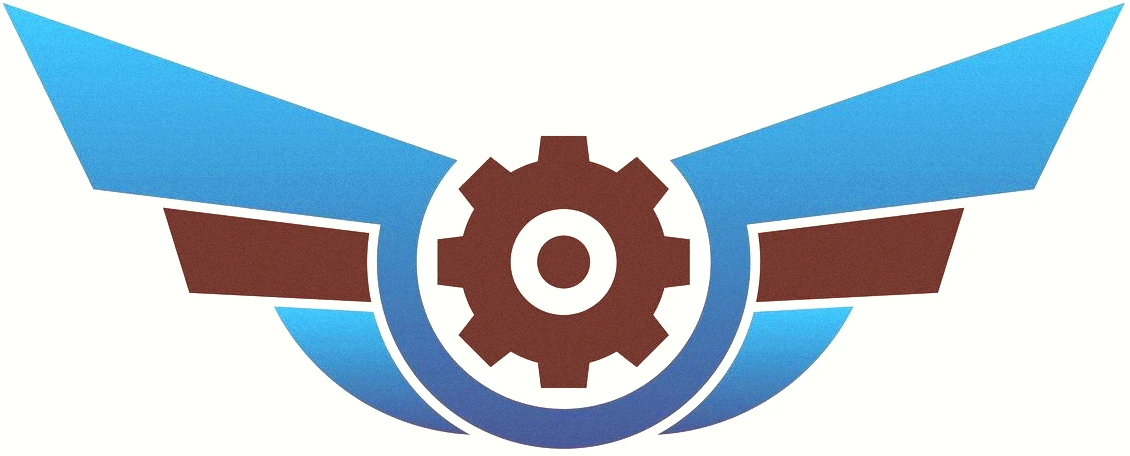Northwest Florida State College offers two FAA-approved aviation maintenance certificate programs: Aviation Airframe Mechanics and Aviation Powerplant Mechanics. Each program combines classroom learning with intensive hands-on training to prepare students for licensure and employment in the aviation industry.
Quick Facts
- Length: 12 Months to 15 Months
- Cost: $5,000 per certificate
- Location: Niceville, FL
- Website: https://www.nwfsc.edu/aviation/
Aviation Airframe Mechanic Program
Certificate Overview
The Aviation Airframe Mechanics certificate program at Northwest Florida State College prepares students for FAA certification through a 1,350-clock-hour training sequence.
Designed as a full-time, hands-on program, it takes approximately 12 to 15 months to complete and strictly follows Federal Aviation Administration (FAA) standards. Students are eligible to take the FAA’s written, oral, and practical exams for the Airframe Mechanics license upon program completion.
Curriculum
The curriculum includes eight core courses delivered over three semesters. Students begin with foundational instruction in aviation maintenance, followed by progressive training in airframe systems such as hydraulics, flight controls, electrical components, and cabin environmental systems.
Each course blends classroom instruction with practical lab work to develop key technical skills and industry readiness.
- AMT0701 Aviation Maintenance Technology General I
Introduces foundational concepts in aviation maintenance, focusing on math, physics, FAA regulations, and technical documentation. - AMT0702 Aviation Maintenance Technology General II
Covers interpretation of aircraft drawings, identification of hardware and materials, use of precision tools, fluid line fabrication, and safety wiring techniques. - AMT0703 Aviation Maintenance Technology General III
Explores basic electricity concepts including AC/DC circuits, aircraft batteries, electrical testing, and semiconductor devices. - AMT0704 Aviation Maintenance Technology General IV
Teaches aircraft ground operations, fuel systems, corrosion control, weight and balance, and non-destructive testing procedures. - AMT0712 Aviation Maintenance Technology Airframe I
Focuses on aircraft structural assembly, rigging, non-metallic materials, and basic electrical systems. - AMT0713 Aviation Maintenance Technology Airframe II
Covers aircraft fabric finishes, wood structures, sheet metal repair, and introductory welding techniques. - AMT0714 Aviation Maintenance Technology Airframe III
Introduces hydraulic and pneumatic systems, landing gear components, and cabin environmental control systems. - AMT0717 Aviation Maintenance Technology Airframe IV
Explains fuel, ice and rain protection, fire safety systems, as well as instrument, pitot-static, communication, and navigation systems.
More curriculum information here:
- https://catalog.nwfsc.edu/preview_program.php?catoid=39&poid=17818
- https://www.nwfsc.edu/aviation/aviation-airframe-mechanics/
Instructional Focus and Lab Training
This program emphasizes real-world, practical learning through the use of specialized equipment and structured labs. Training is intensive and focused on inspection, repair, and overhaul of aircraft structures and systems. Students are expected to meet high standards for attendance, performance, and safety throughout the program.
Aviation Powerplant Mechanics
Certificate Overview
The Aviation Powerplant Mechanics program at Northwest Florida State College is a 15-month career certificate designed to prepare students for FAA Powerplant certification.
Students learn how to inspect, service, and repair powerplant systems while developing technical knowledge and professional skills needed in the aviation maintenance field. The curriculum meets strict FAA requirements, and attendance and grading policies are closely monitored.
Curriculum
The program includes 1,350 contact hours of instruction across eight courses, combining classroom learning and hands-on training in aircraft engine systems, electronics, fuel systems, and turbine and reciprocating engines.
- AMT0821C Aviation Maintenance Technology Powerplant I
Covers the fundamentals of reciprocating engines, including ignition, fuel and induction systems, exhaust, cooling, lubrication, and propeller control systems. - AMT0822C Aviation Maintenance Technology Powerplant II
Focuses on reciprocating engine overhaul, removal, installation, operation, and procedures for inspection, troubleshooting, and maintenance. - AMT0823C Aviation Maintenance Technology Powerplant III
Introduces turbine engine basics along with engine fire protection, instrument systems, and powerplant electrical systems. - AMT0824C Aviation Maintenance Technology Powerplant IV
Covers turbine engine overhaul, installation, operation, and techniques for inspection, troubleshooting, and maintenance.
More curriculum information here: https://catalog.nwfsc.edu/preview_program.php?catoid=39&poid=17818
Admissions Requirements
Enrollment in the program is competitive and limited to 24 students per cohort. Applicants must first gain admission to Northwest Florida State College and submit Florida residency paperwork.
Additional requirements include a high school diploma or equivalent, attendance at an orientation session, and demonstration of college readiness via PERT or TABE scores.
Format and Delivery
Programs are delivered entirely in person and is not available online due to its hands-on format and FAA regulatory requirements. Students attend scheduled day classes and participate in structured labs that replicate the conditions of professional aviation maintenance environments.
Tuition
Combining tuition, fees, and additional expenses, the cost for each certificate program is approximately $5,000 to $6,000 for in-state students.
More tuition details here: https://www.nwfsc.edu/tuition/
Career Outcomes
Graduates are eligible to sit for the FAA written, oral, and practical exams required for licensure. Career opportunities include employment in general aviation, commercial airlines, repair stations, powerplant manufacturing, and military aircraft maintenance.
Conclusion
The Aviation Airframe Mechanics program offers intensive, FAA-aligned training that prepares students for certification and employment in the aviation maintenance field. With selective admissions, skilled instruction, and career-focused outcomes, this program provides a strong foundation for those seeking to enter or advance in the aviation industry.
